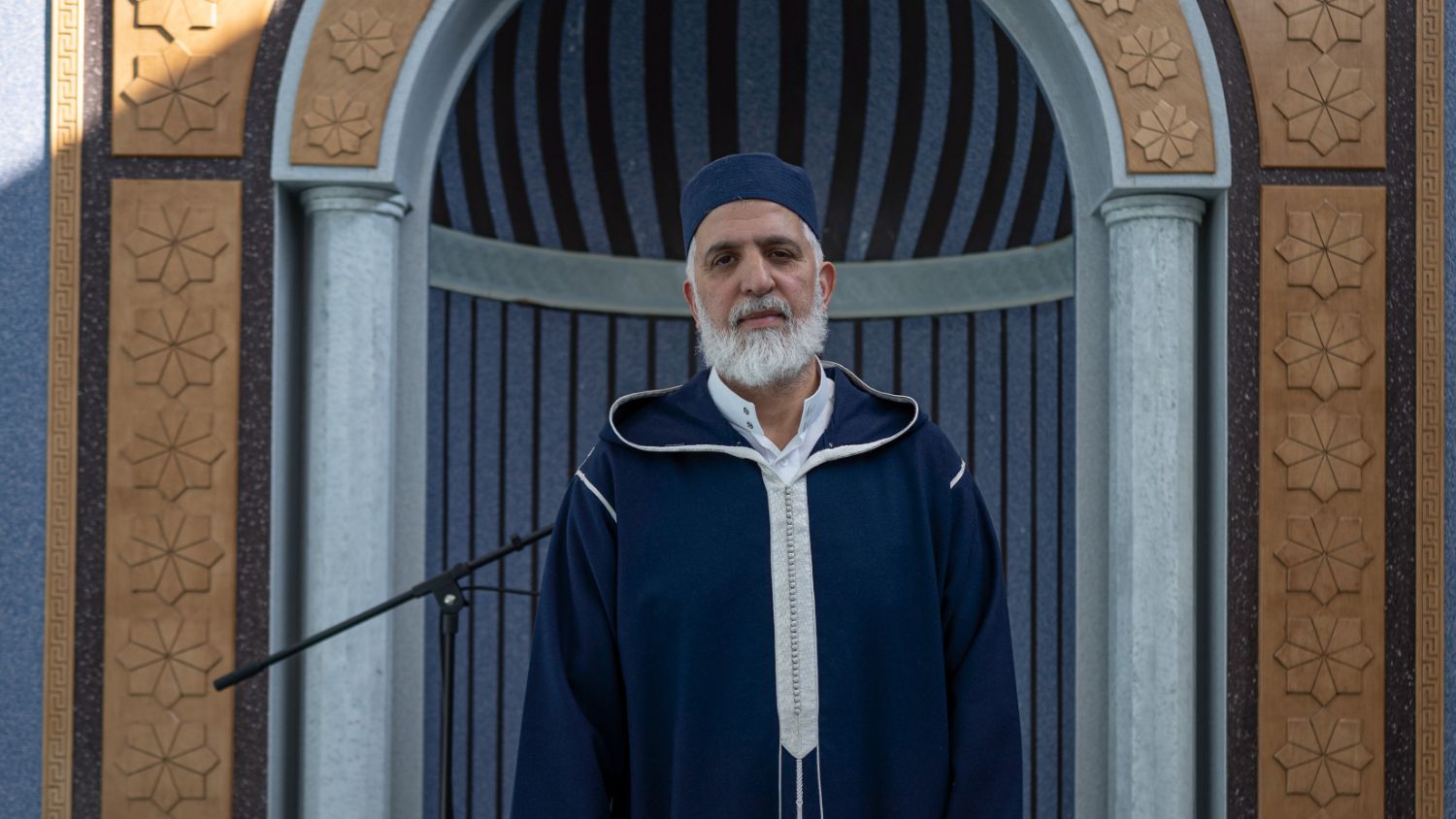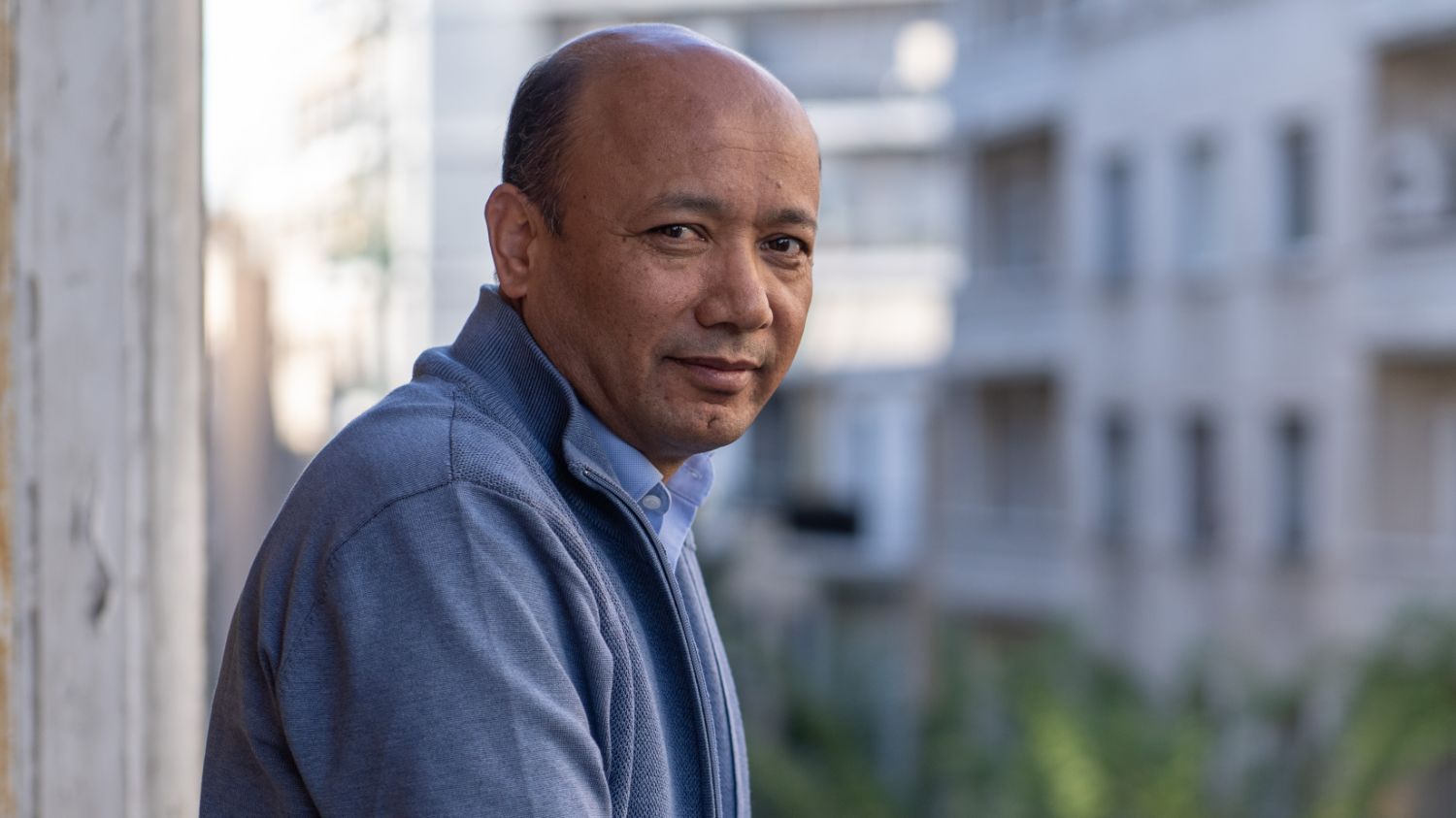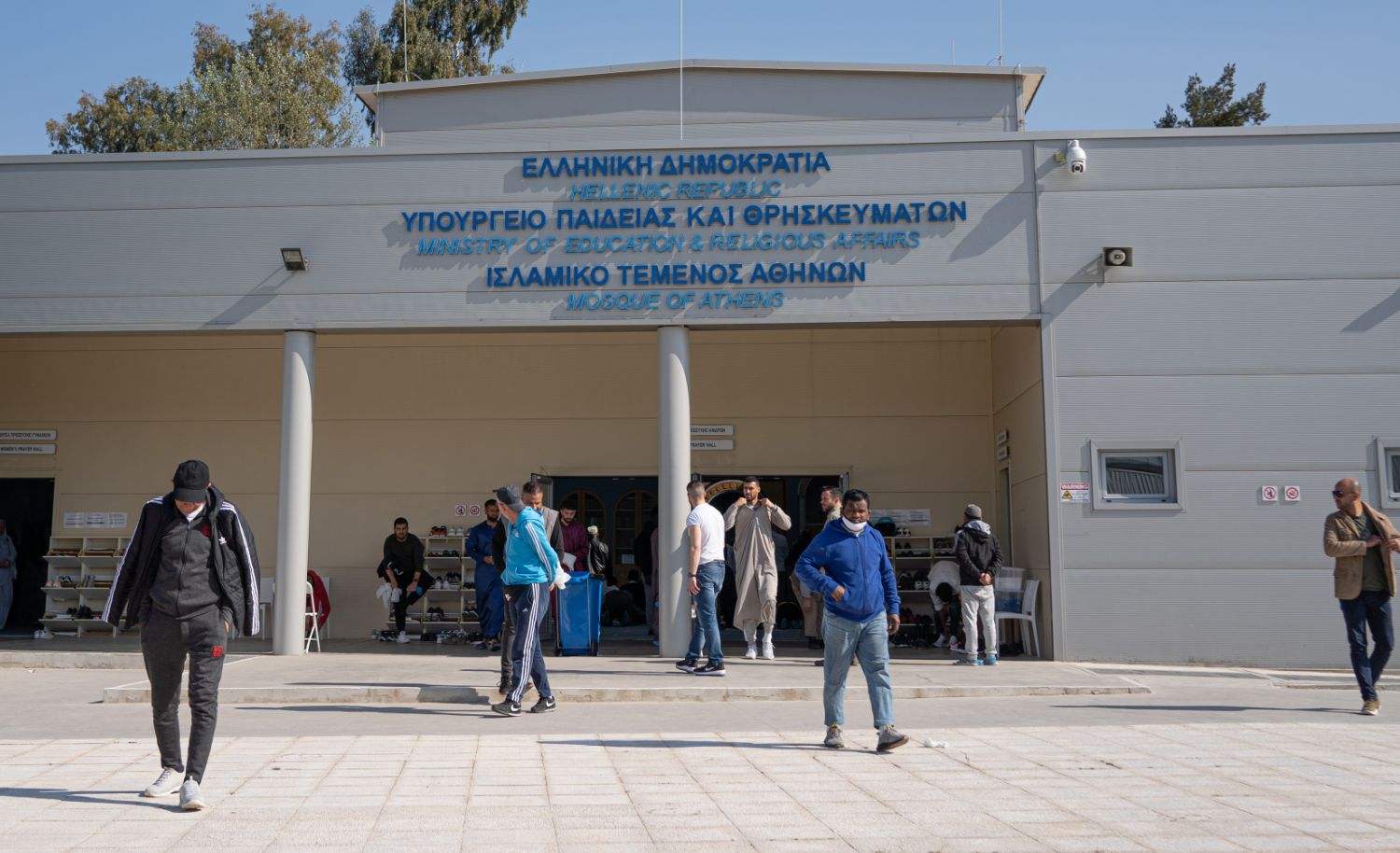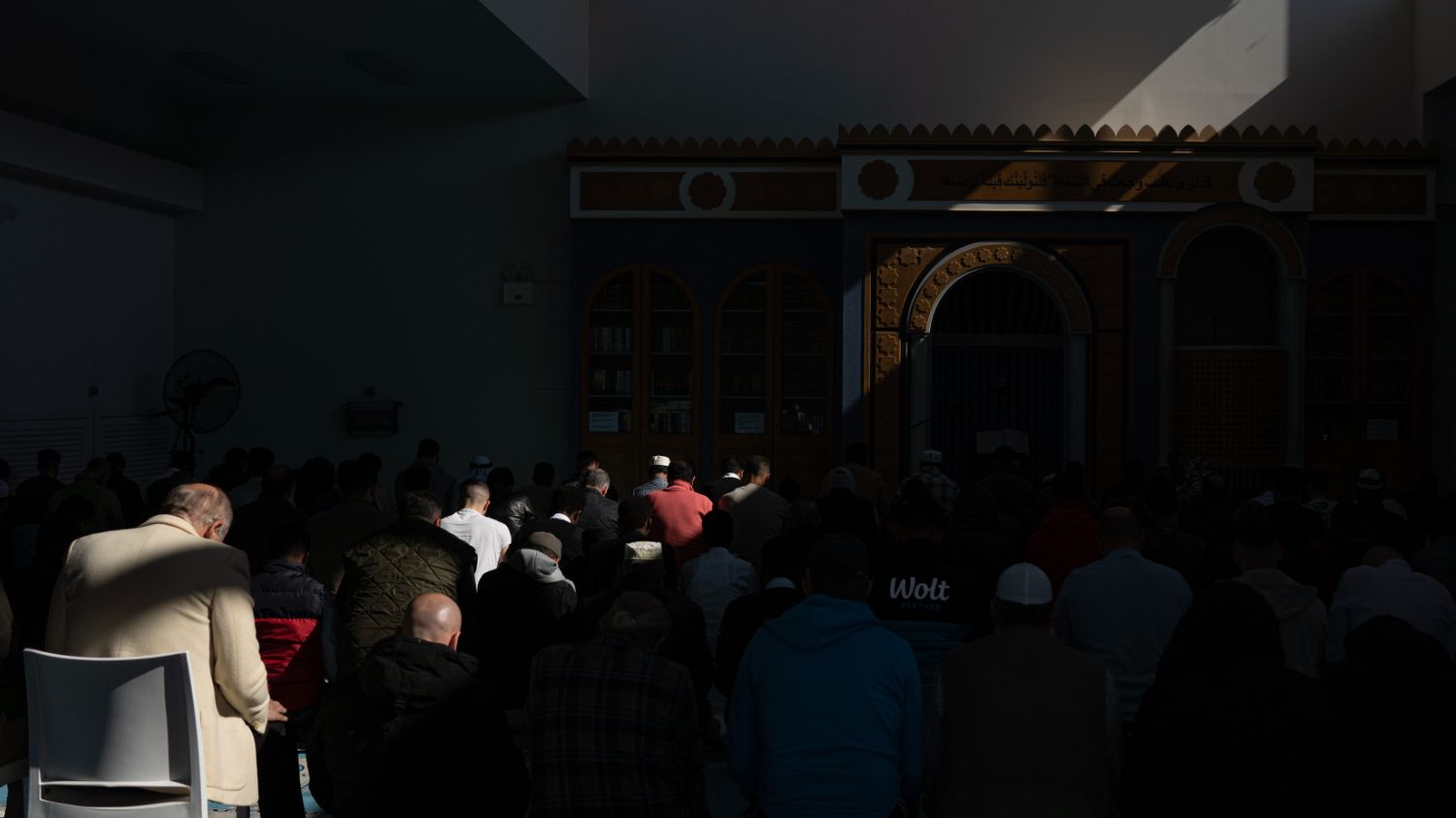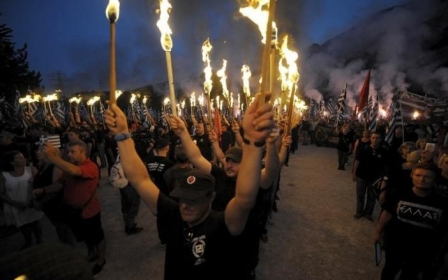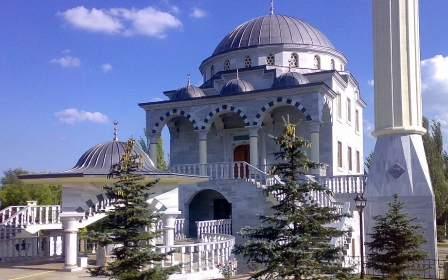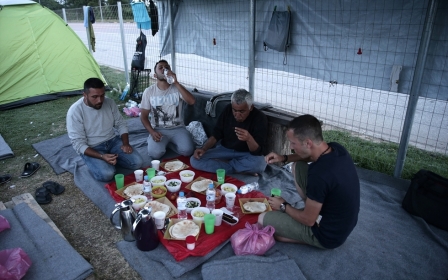A mosque for all seasons: Worshippers mark the third Ramadan at Athens' Votanikos Mosque
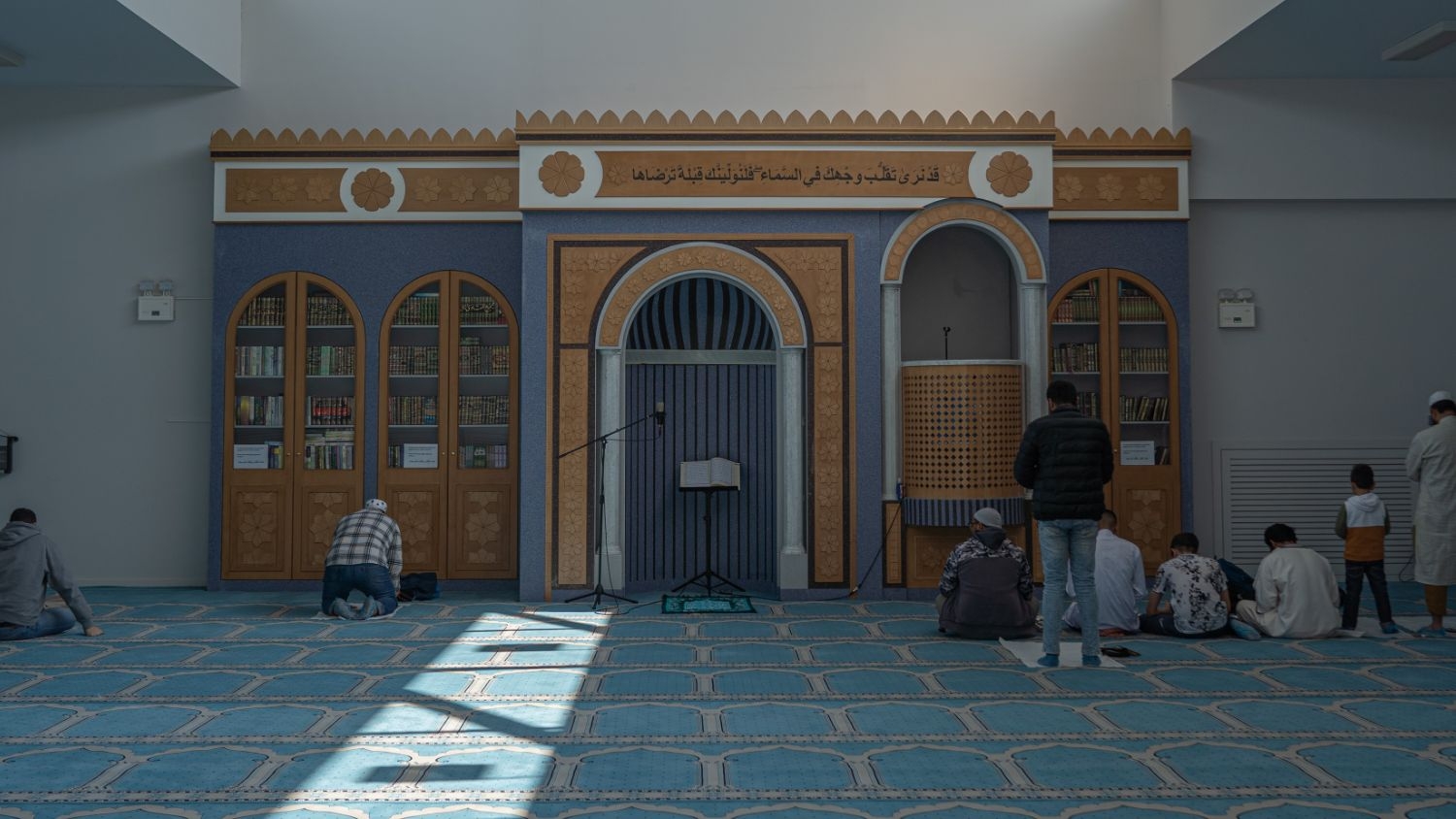
A 20-minute drive from the centre of Athens, behind a row of industrial buildings, a narrow side street passes through a steel gate and opens up to a broad plot of land where the Votanikos Mosque is located.
Once a naval garage, the site became home to the Greek capital’s only government-sanctioned mosque in November 2020, when it opened its doors during the height of the Covid-19 pandemic.
A modest building with no minaret, the Votanikos Mosque sits on a 17,000 sqm patch of land that also has an expansive parking lot and a large playground.
Long the focus of local pushback, the mosque and its worshippers are now marking the third Ramadan since it opened. Even two and a half years after its inauguration, a small group of police officers still provide security 24 hours a day.
On the afternoon of the first Friday of Ramadan, around a dozen men lined up at the entrance, removed their shoes and went into pray. Outside, a man spoke on his phone in Arabic while his children chased one another in the playground.
New MEE newsletter: Jerusalem Dispatch
Sign up to get the latest insights and analysis on Israel-Palestine, alongside Turkey Unpacked and other MEE newsletters
Inside, one man walked his son through the steps of the prayer. Others prayed in groups, while a handful sat against the wall and read the Quran. Some posed for photos in the prayer hall.
Occasionally, the imam Mohammed Zaki came in and greeted worshippers, kissing their hands. A tall, lean man, he alternated between Arabic, Greek and English as he chatted with those who had come to pray.
Zaki moved from his native Morocco to Greece nearly three decades ago. Speaking to Middle East Eye, he explained that the mosque can accommodate up to 360 people in the men’s section, while the women’s prayer room can hold between 70 and 80.
“Muslims in Athens are glad to have an official mosque these days,” he said.
Basement mosques
Despite its sizeable Muslim population, Athens had no official Islamic house of worship before the Votanikos Mosque. For decades, Muslim residents could only attend makeshift mosques and unrecognised facilities throughout the capital.
Even today, according to Yonous Muhammadi, president of the Greek Forum of Refugees, many in Athens still choose to attend unofficial mosques. “Of course, there are still many unofficial mosques in places like basements,” he told Middle East Eye.
When the Votanikos Mosque did finally open, it did so amid public health restrictions aimed at preventing the spread of the coronavirus. For much of the first year, worshippers adhered to social distancing protocols and limits on the number of people who could attend services at a time.
But that wasn’t the first difficulty advocates for the mosque had to grapple with over the years. The government first approved its construction in 2006, after the Muslim Association of Greece submitted an application to the Ministry of Education and Religion.
Muhammadi, who first came to Greece in 2001 after fleeing Afghanistan, explained that the efforts of other advocacy groups to get the mosque built came amid an anti-Muslim push spearheaded by the far right and other groups. “During the building of the mosque, there were a lot of demonstrations,” he said.
For some 14 years, construction was delayed time and again, and the mosque faced opposition in the courts as well. Opponents included the Greek Orthodox Church and others.
Amongst the most vocal of those far-right groups was Golden Dawn, the neo-Nazi party that surged into the Hellenic Parliament in 2013 and later became the third-largest party in the country.
A Greek court has since designated Golden Dawn a criminal organisation, sent many of its members to prison and banned it from taking part in elections. But at its peak, the group was responsible for a spate of hate crimes and murders over the years, many of which targeted refugees and migrants.
The exact number of Muslims in Greece is unclear. The country’s northwest is home to more than 100,000 Muslims, most of whom hail from Turkish, Pomak and Roma ethnic backgrounds.
For decades, Pakistani migrant labourers have come to the country for work, and since 2015, refugees and migrants from across the Middle East have arrived in higher numbers than the past, although the conservative New Democracy clamped down on new arrivals in recent years.
Still, the Greek government doesn’t include religious affiliation in its official census. In 2010, the Pew Research Center estimated, some 5.6 per cent of Greece’s population was Muslim. In 2016, Pew predicted that the Muslim percentage of the population would grow at least 2.4 per cent by 2050 even if then-elevated refugee flows stopped entirely.
In Athens alone, the Muslim Association of Greece says that there are more than 300,000 Muslims.
Growing population or not, Muslims in Greece still sometimes face pushback on building more mosques. In 2021, only a few months after the Votanikos Mosque started welcoming worshippers, a proposal to open a mosque in Thessaloniki was rejected.
The Muslim Association of Greece’s Anna Stamou said Greek authorities have recognised some formerly unofficial mosques in recent years, while others remain “in a state of limbo”.
Stamou said that successive Greek governments have stood against “the visibility of Muslims” in order to “keep us low in society and underground”.
“Islamophobic policies have been applied for years,” she said. “We Muslims are in a category that's being constantly diminished and has no access to equality.”
A mosque for all
Back at the Votanikos Mosque, imam Mohammed Zaki said he was proud that the mosque had now hosted four Eid celebrations and was now marking its third Ramadan.
Later that afternoon, the parking lot filled up as around 100 people showed up for asr (late afternoon) prayers. Men washed their feet, before removing their shoes and entering their hall; while a queue of women gathered at the entrance of the female prayer space.
The muezzin’s call to prayer rang out through loudspeakers fixed to the mosque’s rooftop. Inside, everyone knelt in prayer. Zaki then delivered the khutba, or sermon, in both Arabic and Greek.
When afternoon prayers ended, the crowd began to file outside. Putting on their shoes and gathering their belongings, many bode farewell to one another in Arabic, others in Punjabi and some in Greek. A security guard lingered near the entrance.
Because Athens is home to a diverse Muslim minority, the mosque’s worshippers come from across the world, including many from the Middle East, South Asia and Africa.
“Islam doesn’t differentiate between nationalities, and it doesn’t differentiate between skin colour,” Zaki said. “In this country especially, there are Muslims from every background: Arabs, Pakistanis, Indonesians, Filipinos, Sudanese and from all over Africa.”
He added, “There were some problems from extremists in the past, but we now have a mosque, and anyone can come pray here without fear.”
Middle East Eye delivers independent and unrivalled coverage and analysis of the Middle East, North Africa and beyond. To learn more about republishing this content and the associated fees, please fill out this form. More about MEE can be found here.


